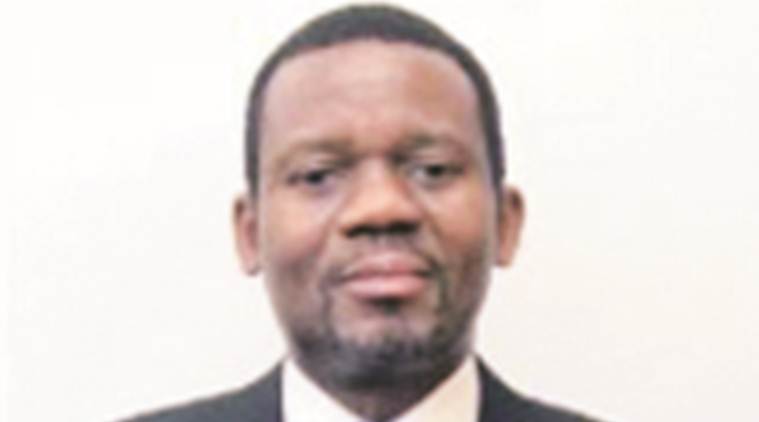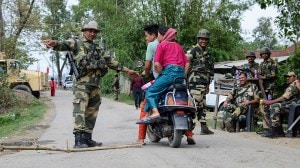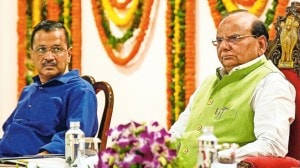- India
- International
‘India setting up a national framework of climate services…identification of priority areas underway,’ says Filipe Lucio
WMO is working towards providing seamless provisions for weather and climate services to the world, both on short- and long-term basis.
 Filipe Lucio
Filipe Lucio
Filipe Lucio, director, Global Framework for Climate Services (GFCS) at World Meteorological Organisation (WMO), talks to The Indian Express about the urgent need for creating user-based climate products, the organisation’s efforts to improve global weather observation networks and India’s meteorological services. Located in Geneva, WMO is the highest body that coordinates meteorological and climate services globally. Excerpts from the interview:
What are WMO’s focus areas for 2020-2030?
WMO is working towards providing seamless provisions for weather and climate services to the world, both on short- and long-term basis. We understand the need to engage with users and stakeholders, understand their decision-making processes, their needs and ways in which weather or climate impacts their sectors. Based on their inputs, co-designing of weather products will be taken up. A key task in WMO’s climate services will establish user-specific interface platforms and developing sector-specific weather products. WMO has identified areas like food security, water, agriculture, energy and urban environment. WMO’s climate services division will work to provide tailored products developed by global centres which will be transferred to regional centres and later be given to meteorological or hydrological departments in respective countries. WMO will be supporting the implementation of global and national framework of climate services.
[Sector-wise weather products are weather-specific services exclusively tailored for stakeholders like farmers, officials at disaster management, irrigation, tourism, health, electricity and power departments. Such products make use of weather factors that are likely to affect the sectors].
Can you elaborate on the national framework of climate services?
The national framework of climate services will essentially facilitate the development of an interface between climate service providers and users in every country. Here, all the stakeholders can unite and identify needs and priority areas. Establishing such a national framework is a significant step that has facilitated inter-institutional collaboration. Now, there is collaboration that has facilitated sharing of knowledge and expertise and importantly, duplication of work gets avoided. The national framework has also made it possible for various users to appreciate the available climate service facilities and also understand the limitation of the services.

How many countries have established such a national framework so far?
There are 23 countries that have either established and made operational the national framework or are at the various stages of establishing one. Countries where it is fully operational include Switzerland, Germany, United Kingdom, China and Tanzania, while work is underway in Malawi, Mali and some countries in the west Africa and Caribbean regions.
India is currently working on setting up the national framework for which identification of priority areas is underway. What has transpired due to the establishment of a national framework is that some governments have extended greater support through investments in improving climate and weather services. Tanzania, for example, became sensitive and released funds for procurement of three weather radars, thereby strengthening local weather services. The main reason for such a transformation is that under the national framework, all stakeholders — including decision-makers are brought on-board for discussions. They are informed about the risks and vulnerability of their economic activities caused due to weather and climate hazards. As a result, governments better understand the contribution of climate services in a country’s development. This then results in investments for improving the overall weather services. So far, the feedback has been good. However, WMO now fully understands the multiple challenges involved in devising frameworks in some countries and undertaking collaborations with multiple stakeholders.
This is a long-term and systematic process that will bear fruit in future.
Quality weather data is vital for running weather models and preparing weather forecasts. Can you comment on the availability of weather data globally?
WMO is particularly concerned that weather data recorded from some parts of the world has declined. The quantity and availability of the observed weather data is reducing in Africa. Today, it has fallen to 1/8th the number of required weather stations as per WMO standards. In comparison to two decades ago, Africa today has improved with greater investments made, but several challenges still persist. This includes carrying out regular weather observations. Whereas in some other countries with multiple agencies like ministries of agriculture, environment and private players recording same weather data, the absence of a common database forces data to be stored in different repositories. To address this issue, WMO promotes the WMO Integrated Global Observing System (WIGOS). This platform enables data gathering partners within a country to share with national networks. Data sharing is not practiced in all parts of the world. However, no data holds value until it is appropriately used and made available for operational purposes. Yet another teething problem is that vast amounts of past weather data are available in non-digital formats and cannot be extracted readily for operational or research purposes. To avoid the risk of losing such data, WMO supports data digitisation through data rescue.
Ocean data still has gaps and for issuing decadal climate projections, ocean data is the key. Any plans to improve global weather data observation network?
One of WMO’s latest effort is to establish Global Basic Observing Network (GBON) in the world. It will be an essential network allowing the gathering of basic weather data around the world and make it available for operational purposes. Importantly, the government in every country will be responsible for the operations of GBON. It will be a network with weather stations identified on a global-scale. Within that, there will be region-specific weather stations identified. At present, the process of identifying weather stations by respective countries is underway.
How do you see meteorological services provided by India?
India is a leading country in terms of providing weather and climate services. There are many different applications tailored for different sectors, like agriculture, available in India. In addition, good research and training facilities are available here, which are also extended to personnel from neighbouring countries in the region. India is well placed in this field and will continue to make progress in providing weather services, both in the weather and climate time-scale.
Click here to join Express Pune WhatsApp channel and get a curated list of our stories
Apr 27: Latest News
- 01
- 02
- 03
- 04
- 05








































